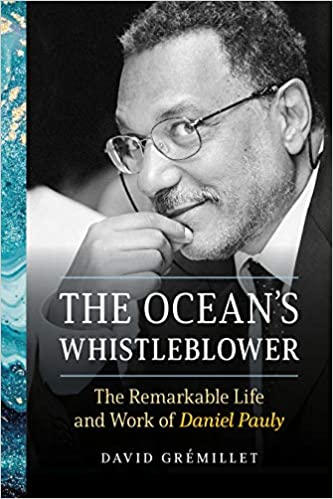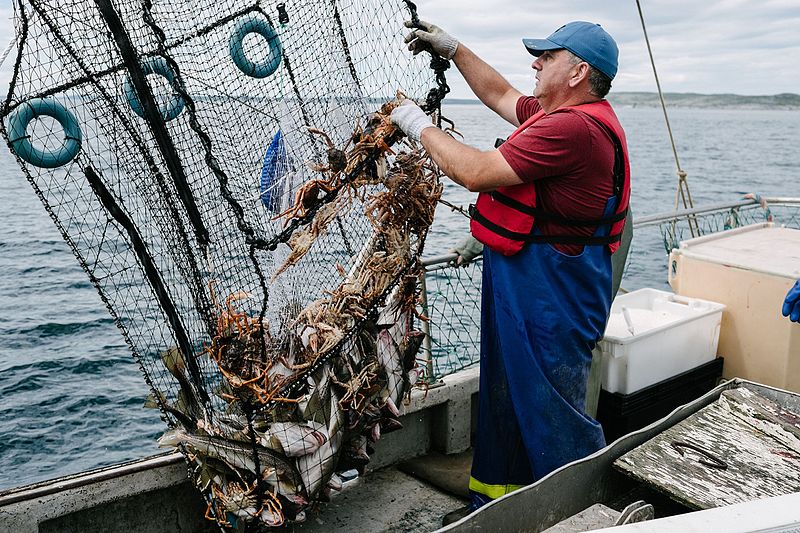In late September, the Sea Around Us principal investigator, Dr. Daniel Pauly, was among the virtual presenters at the World Fisheries Congress 2021, which was held in a hybrid format that included in-person presentations in Adelaide and online lectures, recorded sessions and discussion forums.
Category: New & Notable
Daniel Pauly’s biography now available in English
 Two years after the release of Daniel Pauly: Un Océan de Combats, the English version of the biography of the Sea Around Us principal investigator is now available in bookstores.
Two years after the release of Daniel Pauly: Un Océan de Combats, the English version of the biography of the Sea Around Us principal investigator is now available in bookstores.
Titled The Ocean’s Whistleblower: The Remarkable Life and Work of Daniel Pauly, the 342-page tome goes over Dr. Pauly’s scientific career as the whistleblower who alerted the public about the devastation caused to marine ecosystems by the global fishing industry.
High cod catches could have been sustained in Eastern Canada for decades, simple stock assessment method shows

A simple fish stock assessment model applied to over 500 years of catch data demonstrated that if Canadian authorities had allowed for the rebuilding of the stock of northern Atlantic cod off Newfoundland and Labrador in the 1980s, annual catches of about 200,000 tonnes could have been sustained.
The Sea Around Us in the cloud

Photo from MaxPixel, CC0.
The Sea Around Us data offered through this website are vast and complex and when large database queries are made, or multi-dimensional charts are rendered, our services may slow down or become unavailable.
Seeking to improve data access, avoid time delays, and provide a better user experience to enhance meaningful analysis and research, we have partnered with UBC Cloud Innovation Center (UBC CIC).
Paris to host the FishBase and SeaLifeBase Anniversary Symposium
Prominent researchers in the fields of biology and fisheries science are set to gather on September 6-7, 2021, in Paris to celebrate the 30th anniversary of FishBase and the 15th anniversary of SeaLifeBase.
Hosted at the Muséum National d’Histoire Naturelle, on the banks of the river Seine, the FishBase and SeaLifeBase Symposium will bring together renowned scientists such as Daniel Pauly, Rainer Froese, Jessica Meeuwig, Jos Snoeks, among others, who will present the different uses of FishBase and SeaLifeBase in the fields of ecology, biogeography, fisheries, taxonomy and aquariology.





